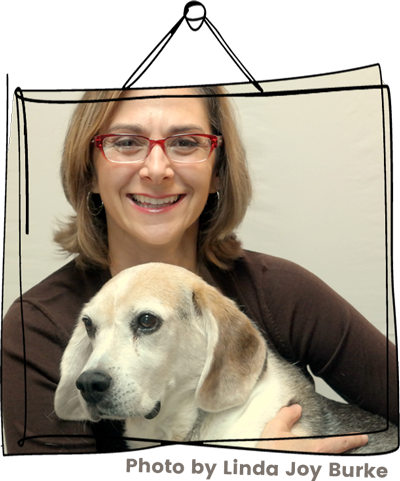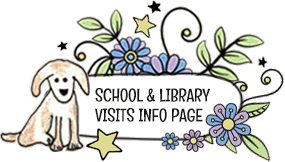It’s the last Poetry Friday of National Poetry Month. We’re down to the last two author interviews of my NPM17 series on verse novelists.
A quick note first: I’m part of Bookology’s month-long poetry mosaic, which features many of our Poetry Friday friends reading their own poems. You can find that here.

Thanks to JoAnn Early Macken for hosting Poetry Friday this week. You’ll find April and all of this week’s poetry links at Teaching Authors.
I have something and someone different to share with you today: A verse novelist in the making! Meet Amanda Hill, a debut prose-novelist who just finished polishing up a novel-in-verse with her agent. The working title of that book is THE HOPE OF ELEPHANTS.
Amanda interviewed me about writing verse novels a few months ago. (Read part one of that interview here.) I’m happy to include her in this months verse novelist series.
Tell us about the verse novel you’re working on, Amanda. What is it about the story and characters that led you to write the book as poetry?
The verse novel is an MG/YA crossover about a girl who finds out she has a 50/50 chance of having the same cancer gene that is killing her father.
I knew it was in verse almost from the very beginning, simply because that is how the character started speaking to me before I even wrote anything down. It took me a couple minutes of listening to her words and hearing the rhythm of them before I said, “I think she’s talking in free verse.”
Sure enough. She was. And it’s a good thing, too. Because the idea in the story of something being 50/50 and having two different paths one can possibly take in life is something that I was able to actually illustrate in form using poetry.
 Does your story spin on one central event and how it impacts the characters in the book? If so, how did you incorporate poetic elements such as metaphor and symbolism to show the echoes of that event through the novel? Would you share an example of this from your book?
Does your story spin on one central event and how it impacts the characters in the book? If so, how did you incorporate poetic elements such as metaphor and symbolism to show the echoes of that event through the novel? Would you share an example of this from your book?
My story spins on this idea of the character wondering, “Am I living or dying?” while simultaneously watching her father die. So, this idea of death and what it means to die is echoed a lot through my book, especially through the last half. Although, I very rarely talk about it outright. I use a lot of symbolism. One poem says death is like finishing a really good book. Another compares terminal illness and death to waiting in an airport and then getting on a plane. The very last poem is left up to the reader as to whether it is another metaphor for dying, or simply something that truly happened, and it’s about crossing a bridge.
Your debut is a prose novel. How was the experience of working on this book different from writing prose fiction? What made you turn to poetry as the backbone of how you tell a story?
Writing a verse novel felt harder to me. First of all, the number of words I could get onto the page in an hour was totally different. When I’m writing prose, I can do 1000 easy. With a verse novel, my max was about 400. After that, I would feel so drained mentally, that I just couldn’t do anymore. It was also different in how the story was told. While there were still scenes, I had to tell them in glimpses. Each poem feels more like telling a story through snapshots. A certain feeling or symbol or focus for each poem all adding up to a greater whole and story. It was hard to train my brain to think in snapshots instead of narration, if that makes sense. It still took several rounds of revision to realize that I didn’t need so many poems for one scene. That I was still trying to narrate some things, instead of just giving a glimpse.
That makes perfect sense. My brain tends to think in those snapshots. Even when I’m writing in prose, it’s scene by scene. The narration, the glue between moments, comes later.
Most of the middle grade and YA verse novels I have read are contemporary or historical. I’d love to see a fantasy or science fiction novel-in-verse for kids. Do you think the form is flexible enough to stretch into other genres of fiction? Why or why not?
That’s a good question! I think it definitely could, but probably with limitations. I don’t know if you could do a real epic or high fantasy that needs a ton of world building because I think that would either bog down the poetry, or not be effectively communicated. But I think a light fantasy or a contemporary fantasy with familiar characters like werewolves, vampires, fairy tale characters, etc. could definitely be done well. So I say, Yes…with limits.
Imagine one of your favorite poets has just written his or her first verse novel for children or teens. Which poet is it? Why do you think this person would be a great fit for a kidlit novel-in-verse? Any guesses as to what the book might be about?
I have lots of favorite poets. But when I think about which one could write a great novel in verse for kids, I’m going to have to go with Maya Angelou. I just think MG lit is all about finding hope and starting to figure out how the world works. I think those themes and ideas are really exemplified in some of her poetry. I can totally see an MG character saying, “I rise, I rise, I rise.” Or, “Nobody, but nobody, can make it out here alone.”
As to what it would be about, I think it would follow in the tradition of Nikki Grimes and Janice N. Harrington. a beautiful, family-centered story with a black main character finding their voice.
I’m excited to read your prose novel, Amanda — and happy to have you in the verse novelist community too.
 Amanda Hill grew up in southwest Wyoming, with a library right out her back gate (which accounts a lot for how she turned out.) She attended Brigham Young University, where she earned her bachelor’s in chemistry. From there, Amanda has lived all over the country with her husband and family. She now resides in central California, where she enjoys homeschooling her children, gardening, working with refugees, and, of course, writing. She is represented by Elizabeth Harding at Curtis Brown and has a debut novel being published in 2018.
Amanda Hill grew up in southwest Wyoming, with a library right out her back gate (which accounts a lot for how she turned out.) She attended Brigham Young University, where she earned her bachelor’s in chemistry. From there, Amanda has lived all over the country with her husband and family. She now resides in central California, where she enjoys homeschooling her children, gardening, working with refugees, and, of course, writing. She is represented by Elizabeth Harding at Curtis Brown and has a debut novel being published in 2018.
We wrap up my series of National Poetry Month interviews with verse novelists on Sunday. Holly Thompson will be here to talk about her MG verse novel, FALLING INTO THE DRAGON’S MOUTH.
Here is the full list of posts:
4/3 Jeannine Atkins, STONE MIRRORS: The Sculpture and Silence of Edmonia Lewis (Find the post here.)
4/6 Caroline Starr Rose, BLUE BIRDS (Find the post here.)
4/10 Leza Lowitz, UP FROM THE SEA (Find the post here.)
4/13 Shari Green, MACY McMILLAN AND THE RAINBOW GODDESS (Find the post here.)
4/17 Annie Donwerth-Chikamatsu, SOMEWHERE AMONG (Find the post here.)
4/20 Ellie Terry, FORGET ME NOT (Find the post here.)
4/24 Margarita Engle, MORNING STAR HORSE and FOREST WORLD (Find the post here.)
4/25 Tamera Will Wissinger, GONE CAMPING (Find the post here.)
4/27 Debut novelist Amanda Rawson-Hill (Find the post here.)
4/30 Holly Thompson, FALLING INTO THE DRAGON’S MOUTH (Find the post here.)
You can find a list of National Poetry Month blog projects at Jama’s Alphabet Soup. And check out this great list of recommended MG verse novels from educator Cassie Thomas at the blog Teachers Who Read.






I enjoyed reading those two poignant poems, and hearing about Amanda’s verse novel. I was surprised about this, although it makes sense when you think about it: “When I’m writing prose, I can do 1000 easy. With a verse novel, my max was about 400.”
Thanks, Laura and Amanda!
Thanks, Tabatha. It was fun to include a verse-novel-in-the-works in this series. I am the opposite of Amanda. In poetry, I can (and do) generate lots and lots of ideas, eventually settling on the one that works best. Prose takes me longer — I feel less permission to roam, try new things, get off topic. Not sure why.
Laura, that is so interesting. Just different ways our minds work, I guess.
I’ve really enjoyed this series, I love getting a glimpse into the writing process, and a peak behind the scenes!
Thanks for stopping by, Jane. I’ve enjoyed hearing from each of the verse novelists this month. I love how passionate each author is about this form.
I have enjoyed this series–meeting new poets with novels in verse and catching up with favorites, too. This upcoming novel in verse sounds good.
Thank you!
Wonderful interview. I hope to be you someday (in the process of finishing a verse novel). I really appreciate how you describe the process of getting just 400 words in an hour and being tired at the end. When I write poetry, I take many breaks during a poem because the intensity needs to be broken. I really look forward to your new book for the poetry AND that it’s a MG/YA crossover. I am a middle school librarian that really needs these. Thank you!
Yes, writing poetry is intense. It’s so much condensed emotion. Thanks for reading!
I will look for this book and love the poems shared. It touches me because my daughter’s best friend from high school has that cancer gene from her father, who passed away while they were in high school. Now years later, the friend’s child has survived cancer and she is ill now, too. It is such a frightening thing to live with.
I’m so sorry to hear about your daughters friend. This book is actually based on my brother in law and niece who both have the gene. It is a really hideous disease.
[…] 4/27 Debut novelist Amanda Rawson-Hill (Find the post here.) […]
Very scary what potentially lurks in our genes and in our futures. All the more important to appreciate the present with excellent verse novels. Thanks for bringing all these together, Laura.
A fairy tale verse novel. I like the idea!
[…] 4/27 Debut novelist Amanda Rawson-Hill (Find the post here.) […]